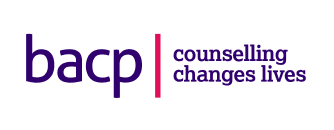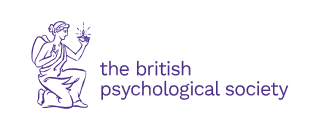What is postpartum depression?
Postpartum depression (PPD) is a type of depression that happens after childbirth, usually within the first 4-6 weeks or up to a year later. According to estimates, PPD affects 1 in 7 women (15%).
Having a baby can be a life-changing experience filled with mixed emotions, both positive and negative. You may feel excited, joyful, happy, anxious, or overwhelmed. However, if you are feeling overly sad, low, tired, worried, or find yourself crying frequently for no apparent reason, you may have postpartum depression.
Postpartum depression is a serious, long-term mental health condition that is different from baby blues, which usually go away on their own. While it is normal to feel a little low in the first few weeks post-childbirth due to hormonal fluctuations, frequent, long-lasting feelings of depression, sadness, and guilt can be a sign of PPD. It can affect your ability to properly take care of and bond with your baby if left untreated.
Signs of Postpartum Depression
The symptoms of PPD can vary in severity and duration. Common signs include:
- Anxiety
- Depression
- Changes in appetite and sleep
- Difficulty bonding with the baby
- Frequent crying
- Inability to concentrate
- Fatigue
- Less interest in pleasurable activities
- Hopelessness
- Irritability
- Difficult making decisions
- Restlessness
- Mood swings
- Overwhelm
- Sadness
- Withdrawing socially
- Panic attacks
- Suicide ideation
Signs of Postpartum Psychosis
A serious condition, postpartum psychosis is different from PPD and requires urgent medical help. Its signs include:
- Paranoia
- Harm to oneself or the baby
- Hallucinations
- Mood problems
Causes of Postpartum Depression
Some causes of postpartum depression include:
- History of mental health issues, especially during pregnancy
- Lack of social support
- Trauma
- Relationship issues
- Stressful life events
Risk Factors of Postpartum Depression
While anyone can get postpartum depression, there are certain factors that put one at risk of postpartum depression. These include:
- A diagnosis of bipolar disorder.
- Changes in relationships.
- Difficulty nursing the baby.
- Having the baby in the NICU.
- A history of depression.
- A history of postpartum depression.
- Family history of psychiatric disorders.
- Financial problems.
- Life stresses.
- Lacking a support system.
- Unplanned pregnancy.
- Multiple births.
- History of trauma.
- Physical changes due to pregnancy.
- Medical complications during pregnancy or childbirth.
- Stresses about parenting.
- Issues at work.
- Lack of sleep.
- Baby facing medical complications
Treatment for Postpartum Depression
There are different treatment options for PPD, that may be done in tandem or in isolation. These include:
Medication
Antidepressants like SSRIs are recommended for mothers undergoing severe depression or anxiety. However, women who are pregnant or nursing need to discuss their options with the doctor, as there is a slight risk involved.
Therapy
Psychotherapy, also known as talk therapy, is one way to manage postpartum depression. It is especially effective in cases where medication cannot be prescribed. Some techniques used include:
Cognitive-behavioral therapy
CBT helps identify negative thoughts, address behavioral patterns and implement meaningful changes. It prevents new mothers from spiraling and helps them learn better coping strategies. CBT is also effective in making new mothers more confident in their role.
Interpersonal psychotherapy
The focus of IPT is on interpersonal relationships that can help address the emotional aspect of PPD. IPT helps new mothers transition into their new roles better. It also helps them adapt better and build a sense of connection.
Other interventions
Getting support from family and friends can make a huge difference for mothers undergoing postpartum depression. Exercise and a good diet are also helpful for managing physical as well as emotional health.
Complications of Postpartum Depression
Postpartum depression needs proper treatment, as otherwise, it can lead to many complications, such as:
- Depressive disorder: Untreated PPD can turn to clinical depression or can heighten the risk of depression later in life.
- Suicide ideation: Mothers with PPD tend to have suicidal thoughts, which is a serious matter. Those suffering from postpartum psychosis may also attempt to kill themselves or the baby.
- Impact on the mother-baby bond: As postpartum can be an all-consuming condition, it can have a grave impact on the bond between the baby and the mother.
- Impact on the children: Untreated postpartum depression has a significant impact on the child’s well-being as well. It can lead to emotional and behavioral problems amongst them.
- Impact on the other partner: PPD can increase the risk of emotional issues in the other partner as well.
Postpartum depression therapy in Dubai
As per one study, 35% of the women in the study exhibited symptoms of postpartum depression. However, the issue does not get proportionate attention. It is thus imperative that the well-being of women be put at the forefront. If you or someone you know is experiencing signs of postpartum depression, reaching out for postpartum depression therapy in Dubai can make a world of difference.
Counsel Clinic provides online postpartum depression therapy services, empowering you to get mental health support from experienced therapists safely from your own comforting space. Counselling has proven to be an effective method to treat postpartum depression in conjunction with medication and other forms of treatment.
To book an online talk session with a therapist near you in Dubai, select any of the licensed postpartum depression therapists mentioned above and complete the booking process.
There are 15 top-rated and licensed therapists for postpartum depression treatment in Dubai listed on Counsel Clinic, with substantial experience and expertise in helping clients cope with postpartum depression through therapy and counselling. You can choose to book a therapy session through the Counsel Clinic website or contact us to get matched with the best PPD therapist near you.
Contact information























